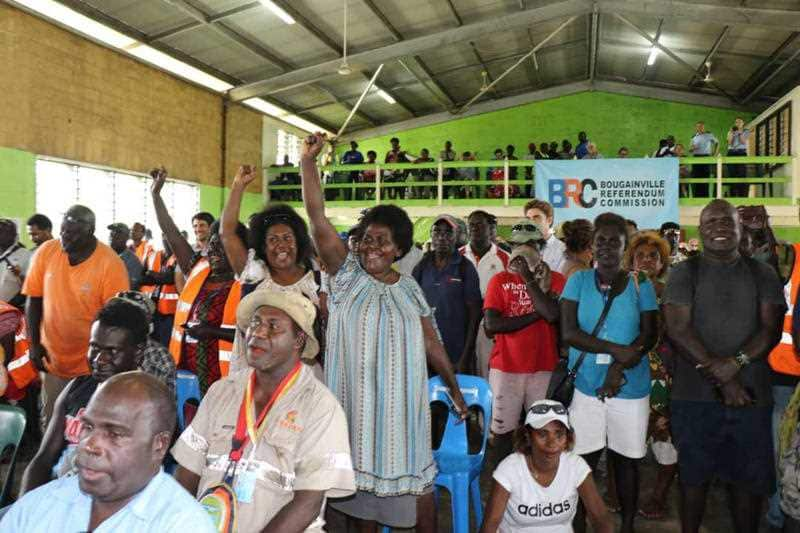A record number of women candidates are contesting polls in the South Pacific archipelago of Bougainville this month, government officials and analysts said, hoping to build on a “milestone” election for women’s political representation in 2015.
The general election is the first since Bougainville, which has a 250,000 population, (PNG) at the end of last year, and the winner will preside over talks on the terms of separation.
“In the 2020 election we have seen an increase in the number of women contesting - including two women running for the president’s seat - so it’s a good sign that the number of women candidates has gone up since 2015,” said Kerryn Baker, a research fellow at the Australian National University.
In a region with one of the lowest levels of women’s political participation in the world - with PNG one of three nations in the world with no female lawmakers - Bougainville has made slow progress in addressing the issue after the end of its decade-long civil war in 1998.
The 2004 Bougainville constitution states that the House of Representatives is made up of 33 ‘open’ constituencies seats, three ‘reserved’ seats for women, and three seats set aside for ex-combatants, said Dr Baker, an expert in electoral reform and women’s political representation in the Pacific islands.
The 2015 election - which attracted 35 women candidates - was a “milestone” for women’s representation, said Dr Baker, noting that a female candidate became the first to win an ‘open’ seat.
Looking to build on this success, the Bougainville House of Representatives’ ‘open’ constituencies will be contested by 14 female candidates this month, a government spokeswoman said.
Also, 27 women were said to be vying for the three ‘reserved’ seats for women and two running for president.
Ahead of two weeks of polling that began on Wednesday, the big issues for Bougainville voters include jobs and economic development, law and order, government services, and the future of mining and other resource developments, analysts said.
“Post-referendum negotiations on Bougainville’s future political status will be an opportunity to push for more access to decision-making positions for women,” said Dr Baker.
This could include measures taken elsewhere in the region, such as a law in Samoa that guarantees five women MPs.

Members of the Bougainville Women's Federation cheer after the result of last year's independence referendum Source: AP
'Men's seats'
But with more than half of the women contesting the election running for the ‘reserved’ seats, it highlighted the common sentiment in Bougainville that ‘open seats’ are ‘men’s seats’, and women should only run in the ‘reserved’ seats, said Dr Baker.
“Women who choose to stand in open seats do face some resistance because of this. For a long time the reserved seats acted as a ceiling on women’s representation.”
The ‘reserved’ women’s seats also means that many high-profile women channel their political campaign into running in only those seats, said Shane McLeod, a research fellow in the Pacific Islands program at the Lowy Institute in Sydney.
However, Bougainville’s autonomous government passed laws in 2016 to ensure equal representation for men and women at local government level with each ward now electing both a male and a female candidate, he said.
“Having two prominent and well known women contesting the presidency should build the profile of women as candidates for the big offices,” he added.
“Women have been a big part of the success of Bougainville’s peace process, and it’s encouraging to see more women contesting the open electorates and the presidency.”



